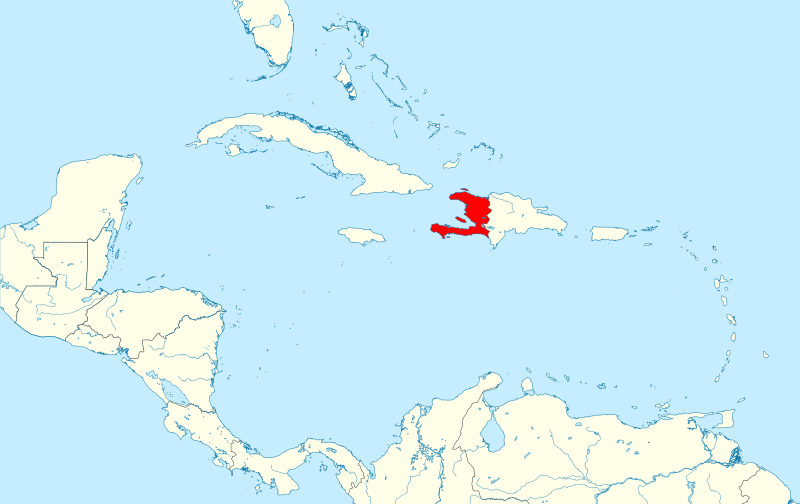 Haiti is located just 700 miles off the coast of Florida
Haiti is located just 700 miles off the coast of Florida
Crisis in Haiti: How America is Perpetuating Violence
This month, Haiti erupted into unseen levels of violence as gangs exert near total control of the capital resulting in the resignation of the acting President Ariel Henry. The recent crisis began while Henry was on a diplomatic trip to Kenya; gangs, armed with illegal weapons smuggled in from the U.S., united to control the capital and block Henry’s return. With unprecedented violence gripping Haiti, it is time to examine the U.S. illicit export economy and its impact on the 5.5 million Haitians in need of humanitarian assistance.
Gangs have gained power through a combination of the poor economic conditions, enabled by a troubled history, and a weak police and military force.
During the 1960-80s, Haiti suffered under the repressive dictatorships of father and son François and Jean-Claude Duvalier. Under their regimes, Haitian professionals fled, leaving only the lower classes. Further economic problems arose from instability caused by repeated coups, the African Swine flu, which harmed rural incomes, and the international AIDS crisis, which effectively ended tourism. Consistently ineffective international intervention, including after the 2010 earthquake crisis, inadvertently added to the instability and never alleviated the persistent poverty in the country. The resulting poor economic conditions have created the opportunity for gangs to rise to power. Noting that the weak police apparatus has also contributed to the problem, President Henry travelled to Kenya to secure a police force of 1,000 in order to assist in stabilizing Haitian society. As it stands, Haitian gangs currently vastly outnumber the weak police force, of only about 9,000. Furthermore, the army was disbanded under former President Aristide, and while President Moise reinstated it, it is too understaffed and outgunned to make any difference.
The gangs also draw power from the smuggled weapons that traffickers bring from the U.S. Traffickers buy weapons in states with relaxed gun laws, like Florida, and smuggle them into Haiti, where the weapons are more valuable. The U.S. needs to address this avenue of impact on the Haitian conflict and find ways to secure the illicit export of weapons.
Gang violence in Haiti has reached an all-time high but is not new to the country. Since Duvalier, dictators “have formed and utilized armed groups external to national security forces for protection or to enforce their own agendas and self-interest.” The current gang structure is largely thanks to Aristide, who started them as a voice for ordinary Haitians, according to former U.S. special envoy to Haiti, Daniel Foote. However, they have since morphed into what they are today: violent extortionist groups. According to the UN “Gangs are now increasingly attacking residential neighborhoods and abducting people en masse, as well as carrying out gang rapes of women and even young children.” This horrific violence should not be allowed to continue fueled by American weapons.
President Henry has been promising elections, which haven’t occurred since 2017, but his unrealized promises have sparked the recent surge of violence. In 2021, he was appointed prime minister by his predecessor Jovenel Moise, and became acting president following Moise’s assassination without any election. Moise was assassinated by a group of Colombian mercenaries, but the conviction of the assassins is only just being processed, along with investigations into who directed the attack. The gangs have united against Henry as an “illegitimate president” under former police officer Jimmy “Barbecue” Cherizier. They attacked several police stations, two major prisons, and the airport to control the capital and prevent Henry’s return. Last Monday, the gangs may have achieved their goal when Henry said he would resign when a transitional council was installed. The council is slowly forming, but faces stumbling blocks from the factionalism and divisive history of the country. The recent rise in violence, effectively blocking international aid from reaching those in need, demonstrates the need for America to address how it has contributed to instability by allowing gun proliferation beyond its borders.
If not for the sake of international security, the U.S. should address this rise in violence for its own security. Already facing a migrant crisis from the U.S.-Mexico border, America should try to address an increasing migration crisis originating from conflict-affected areas like Haiti. The calls for civil war and the displacement of 15,000 people will lead to increased migration. Despite President Biden’s general policy of deporting Haitian migrants and previous de facto support for Henry, the number of refugees will only increase after this recent surge.
The U.S. needs to address its own responsibility in the crisis in Haiti as it has failed to prevent the smuggling of arms from American soil to Haitian gangs, thereby perpetuating violence and instability. Addressing this issue is of the utmost importance to help alleviate the suffering in Haiti without sending troops, and to prevent a dramatic influx of migrants that the already strained American system cannot handle.
Image Source: Caribbean Locator.svg under CC BY-SA 3.0 DEED





